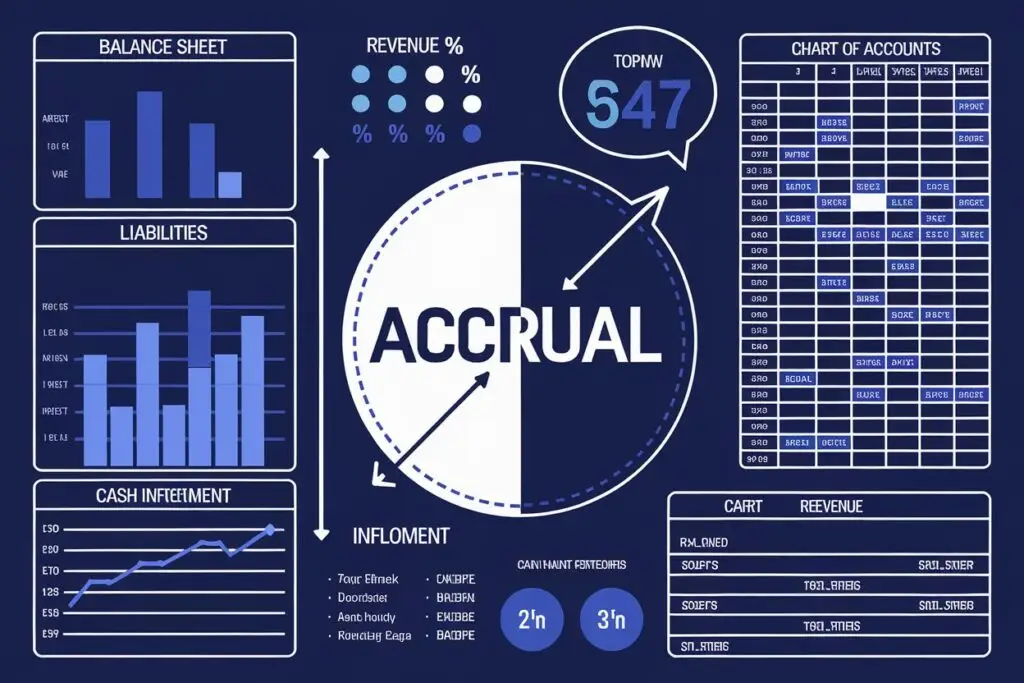The Accrual Basis of Accounting
Accounting is often termed the language of business, and understanding its principles is essential for anyone looking to grasp the financial health of a company. One of the fundamental concepts in accounting is the accrual basis of accounting. This method offers a more realistic picture of a company’s financial situation than its cash counterparts. In this article, we’ll break down what accrual accounting is, how it differs from cash accounting, and its significance in financial reporting.
What is the Accrual Basis of Accounting?
Accrual basis accounting requires businesses to record revenue when they earn it and expenses when they incur them, regardless of when cash changes hands. This means you recognize income when you perform a service or deliver a product, and you document expenses when you establish the obligation to pay, rather than when cash changes hands.
Key Features of Accrual Basis Accounting:
- Revenue Recognition: Recognize revenue when you earn it, not just when you receive it.
- Expense Recognition: Expenses are recognized when incurred, regardless of when payment is made.
- Matching Principle: This important concept requires that businesses record revenues and their associated expenses within the same accounting period.
Difference Between Cash and Accrual Basis of Accounting
Understanding the differences between cash and accrual accounting is critical for any business owner or finance professional. Here’s a quick comparison:
| Feature | Cash Basis Accounting | Accrual Basis Accounting |
|---|---|---|
| Timing of Revenue Recognition | Revenue is recorded when cash is received | Revenue is recorded when it is earned |
| Timing of Expense Recognition | Expenses are recorded when paid | Expenses are recorded when incurred |
| Financial Accuracy | Less accurate for large businesses | More accurate, depicting the actual financial state |
| Complexity | Simpler and easier to maintain | More complex due to tracking of accounts receivable |
| Suitable for | Small businesses and individual entities | Larger businesses and those with inventory |
Key Takeaway:
Accrual accounting provides a comprehensive view of a company’s financial performance and position by recognizing economic events regardless of cash flow.
“The accrual basis of accounting provides a more accurate representation of a company’s financial position and performance over time.” – Financial Expert
Under the Accrual Basis of Accounting
- Revenue Recognition Principle:
- States that revenue should be recognized when it is earned, not when cash is received.
- Matching Principle:
- Ensures that expenses are matched to revenues in the same period, providing a better insight into profit margins.
- Adjusting Entries:
- At the end of each accounting period, companies must make adjusting entries to account for the revenues earned and expenses incurred during that period.
- Long-Term Assets and Liabilities:
- Recognizing long-term assets and liabilities accurately represents a company’s long-term health and investment strategy.
Importance of Accrual Basis Accounting
The accrual basis of accounting is pivotal for several reasons:
- Better Financial Statements: It reflects the company’s economic activities more accurately, leading to more reliable financial statements.
- Informed Decision Making: Management and investors can make informed decisions based on the actual economic performance of the business rather than cash flow variations.
- Compliance with GAAP:Many larger businesses must adhere to Generally Accepted Accounting Principles (GAAP), which require them to use accrual accounting to promote transparency.
FAQs
- What types of businesses should use accrual accounting?
- Can small businesses use accrual accounting?
- Yes, small businesses can use the accrual basis, especially if they wish to obtain financing or investors; it can provide a clearer picture of financial health.
- What are some common challenges with accrual accounting?
- It can be more complicated and require more effort in bookkeeping and maintaining records, especially for small businesses without dedicated accounting staff.
Conclusion
Regardless of the size of the business, understanding the accrual basis of accounting is crucial. This accounting method not only provides a clearer and more accurate portrayal of a company’s finances but also helps stakeholders make better financial decisions. While it may be slightly more complex than cash-based accounting, the benefits it provides in terms of accuracy and compliance make it indispensable for serious financial reporting. By adopting accrual accounting, businesses can achieve better transparency, accountability, and ultimately, profitability.



